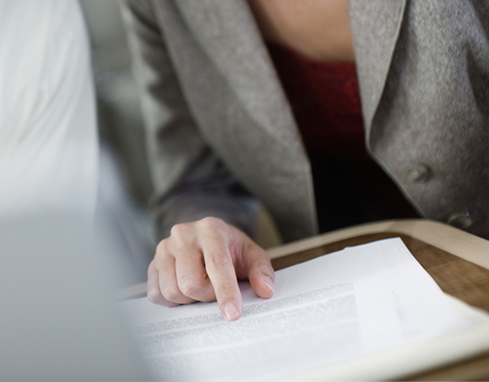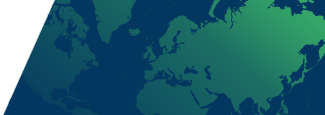

Cote d'Ivoire
Synthesis
major macro economic indicators
| 2020 | 2021 | 2022 | 2023 (e) | 2024 (f) | |
|---|---|---|---|---|---|
| GDP growth (%) | 1.7 | 7.0 | 6.7 | 6.2 | 6.6 |
| Inflation (yearly average, %) | 2.4 | 4.2 | 5.2 | 3.7 | 1.8 |
| Budget balance (% GDP) | -5.4 | -4.8 | -6.7 | -5.1 | -4.0 |
| Current account balance (% GDP) | -3.1 | -4.0 | -6.5 | -5.7 | -5.3 |
| Public debt (% GDP) | 46.3 | 50.9 | 56.8 | 61.0 | 59.0 |
(e): estimation (f): forecast
STRENGTHS
- A wealth of resources: cocoa (world No. 1 producer), rubber, cashew nuts, bananas, gold, manganese, nickel, hydroelectricity, oil and gas, tourism, etc.
- Membership of WAEMU and regional currency
- Growing middle class, but poverty still affects 30% of the population and child labour has not been eradicated
- The reconciliation between former political heavyweights and their gradual disappearance from the scene is a guarantee of stability as it heals the wounds of the two civil wars of 2002-2011
WEAKNESSES
- Vulnerability to climate and the price of cocoa, the main export commodity
- Shortcomings in public management and institutions, infrastructure, access to credit and vocational training
- Low public revenues (around 15% of GDP)
- Massive informal sector: 90% of jobs and 70% of added value; illegal cocoa production lowers cocoa prices
- Wealth gap between Abidjan and the rest of the country, fragile social cohesion
- Jihadist threats on the northern border
Risk assessment
Economic dynamism underpinned by a genuine industrial strategy
Economic growth is expected to exceed 6% in 2023, driven mainly by private consumption, in line with measures to support purchasing power, the multiplication of industrial development plans (agro-industry, chemicals and plastics, building materials, pharmaceuticals, textiles, packaging and refill parts, and automotive), as well as agricultural production, particularly cocoa, for which the government-guaranteed price has been raised for the 2022-2023 season. In 2024, economic activity should remain robust and will be durably underpinned by the boom in industrial activities as well as by moderating inflation, with a projected return to below the regional target of 3%, and by an improvement in global demand. Public investment will remain high, particularly in infrastructure and public facilities, as part of the National Development Plan (NDP, 2021-2025) (extension of the port of Abidjan, construction of a metro in Abidjan, etc.). These NDP projects, along with the reforms of the PEPITE programme (Economic Programme for Business Innovation and Transformation) aimed at improving the business environment and promoting the development of value chains in some fifteen sectors (simplification of the business taxation system, financing for SMEs, creation of new industrial zones, particularly around the processing of cocoa, cashew nuts, rubber and minerals) will support private investment despite tighter financing conditions caused by restrictive monetary policies. The hosting of the African Cup of Nations soccer tournament in early 2024 bolstered the construction sector in 2023 due to major infrastructure needs, and should boost the tourism sector and – indirectly – spending next year. At the same time, the government has launched a new "Sublime Côte d'Ivoire" programme (costing CFAF 3.2 billion) designed to further develop tourism. Foreign trade will benefit from the increase in oil and gas production due to the recent start-up by the Italian group ENI of a major offshore field (the Baleine project). Production started in 2023 and is expected to ramp up in 2024. Côte d'Ivoire's economic growth in 2024 should therefore be much more robust than that of the average sub-Saharan African country.
Slight reduction in twin deficits ahead
Although the public deficit is set to narrow gradually, it will remain above the target of 3% of GDP recommended by the West African Economic and Monetary Union (WAEMU) in 2023 and 2024. In order to mitigate the impact of rising prices on household purchasing power, social spending remained high in 2023. Nevertheless, it is expected to decline in 2024 due to easing inflationary pressures and the government's intention to replace subsidies (mainly on food and fuel) with financial assistance targeted at the most modest income households. However, the numerous public investment plans will continue to fuel spending even though the country is still struggling to mobilise tax resources despite the introduction of new measures. In fact, the tax base is set to expand in line with the new IMF programme, approved last May, which extends over 40 months and is accompanied by a credit of $3.5 billion (of which $495 million was paid out immediately). The programme’s aim among other things is to improve the business environment by cutting red tape, simplifying corporation tax and combatting corruption and informality, which should increase direct taxation. State revenues should therefore rise by 2024, reaching 16% of GDP, a level that nevertheless remains well below the 20% recommended by the WAEMU. External debt (36% of GDP at the end of 2022), in particular multilateral financing (29% of external debt, compared with 52% and 16% respectively represented by commercial and bilateral creditors), will be favoured over domestic debt (21% of GDP), composed essentially of relatively expensive CFA franc securities issued on the regional market. Finally, high growth and the reduction in the deficit should lead to a reduction in the debt burden, the domestic share of which has risen considerably since 2019. Furthermore, as the inflation outlook improves, the regional central bank (BCEAO), following in the footsteps of the European Central Bank, could halt the tightening of its monetary policy in 2024, thereby stabilising interest on the debt which absorbs a significant proportion of public revenue (15%).
The current account has again recorded a significant deficit in 2023, although a reduction is expected for 2024. The commissioning of the new oil and gas field (offshore Baleine) will ease the import bill, while export revenues should increase in connection with the exploitation of new gold mines, which is being encouraged by durably very high global gold prices. Nevertheless, imports are likely to remain high due to high demand for capital goods required for investment. The surplus on the trade balance will be more than offset by the large deficit on services, linked to construction and the hydrocarbon sector, as well as by the deficit on the income account, with the repatriation of income from foreign investors. The current account deficit will be financed more by multilateral debt, which is less costly than issuing Eurobonds, and by the expected resurgence of FDI flows in 2024, mainly to the mining and hydrocarbons sectors at a time when many European countries are looking for alternatives to Russian gas and oil.
The ruling party maintains its lead in the various elections
Re-elected in 2020 for a controversial third term, President Alassane Ouattara, who has been in power since 2011, has steadily strengthened his position at various elections. His party, the Rassemblement des houphouëtistes pour la démocratie et la paix (RHDP), retained its majority in the March 2021 legislative elections, winning 137 of the 255 seats in the National Assembly. In addition, the municipal and regional elections of September 2023 resulted in a large victory for the RHDP party. It won at least 123 of the 201 communes and 25 of the 31 regions (i.e. 31 communes and 7 regions more than in the 2018 local elections), making it possible to assess the party's political strength in the run-up to the 2025 presidential election. After the episodes of intense post-election violence in 2020, political tensions have eased between President Ouattara and his opponents thanks in part to the implementation of the reforms agreed in 2020 (reorganisation of the electoral commission, compensation process for victims of electoral violence). While the socio-political climate is improving, the security situation in the north of the country remains deteriorated. The jihadist terrorist threat along the northern borders with Burkina Faso and Mali is still significant despite the government's introduction of a terrorist risk prevention programme. The Ivorian government has also asked for support from other coastal states as well as from the United States and France. A military cooperation and intelligence-sharing agreement was signed in 2017 with neighbouring countries (Benin, Burkina Faso, Ghana and Togo). In addition, at the beginning of 2023, France reaffirmed its commitment to Côte d'Ivoire, which has been a member of the International Academy for Counter-Terrorism (IACCT) programme since 2017. On the other side of the Atlantic, the United States has announced long-term aid ($100 million over 10 years) to strengthen the resilience of coastal regions in West Africa.
Last updated: November 2023

